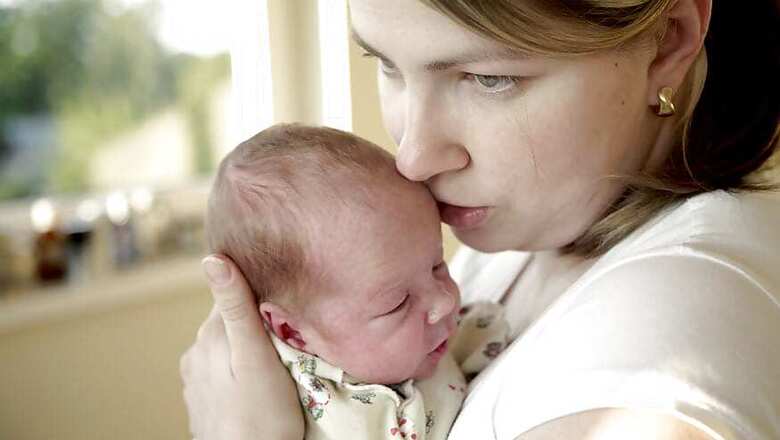
views
A baby's cries activate specific areas of a mother's brain related to movement and speech, a study of mothers in several countries published Monday revealed, reinforcing the idea of biological maternal instinct.
The National Institute of Health study showed regardless of culture, mothers were likely to react to their infant's cries by showing affection, distracting, nurturing, picking up and holding.
The researchers carried out a series of studies into maternal behavior using functional magnetic resonance imaging (fMRI) of the brain.
They observed 684 new mothers and their five-month-old babies in Argentina, Belgium, Brazil, Cameroon, France, Israel, Italy, Japan, Kenya, South Korea and the United States -- studying one hour of interaction in their homes.
Using fMRI studies of other women, the study team also found a baby's cries caused similar brain activity in new mothers and those who had already raised a child.
As well as stimulating the area of the brain related to movement and speaking, imaging showed the sound of a crying baby also activates regions involved in speech production and sound processing.
"Overall, the findings suggest that mothers' responses to infant cries are hard-wired and generalizable across cultures," the authors of the study, which appeared in the American Proceedings of the National Academy of Sciences journal, concluded.
The study follows other research showing male and female brains respond differently to infants' cries.


















Comments
0 comment